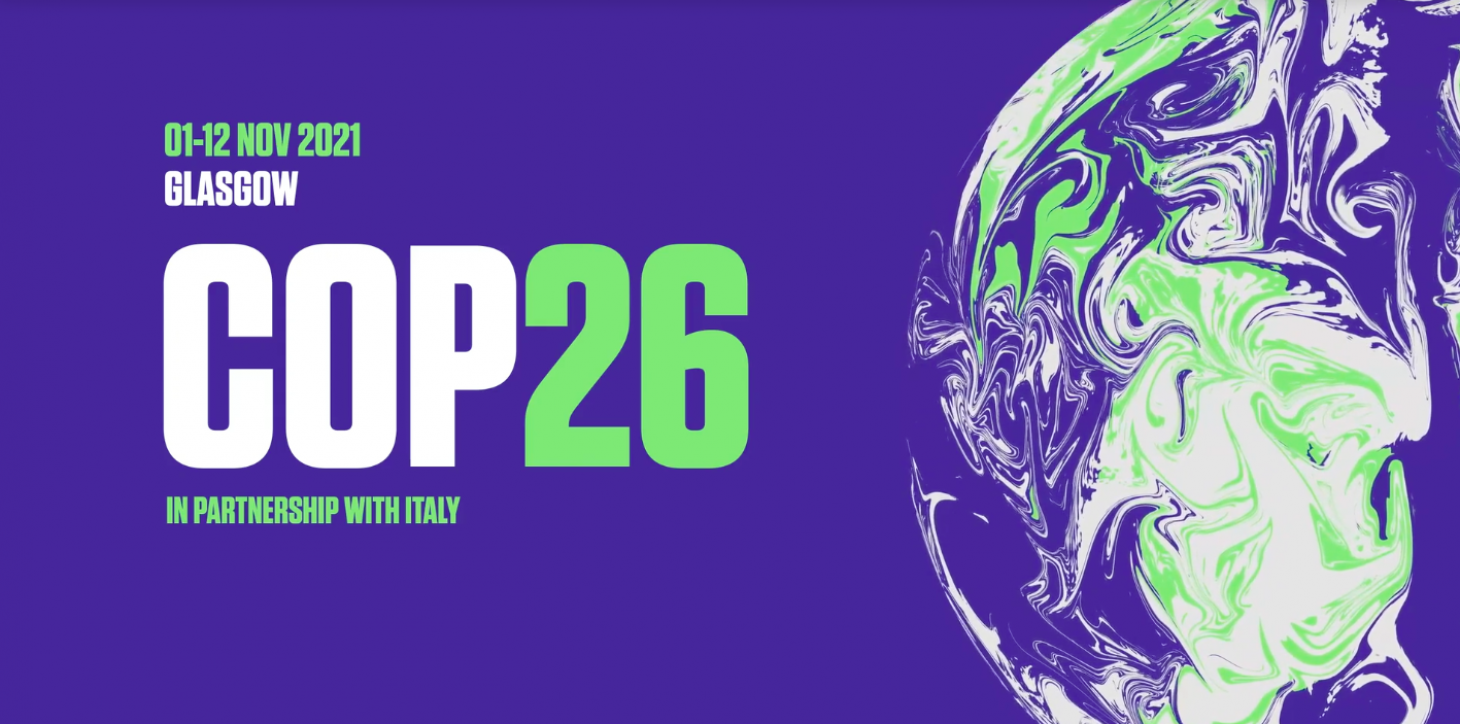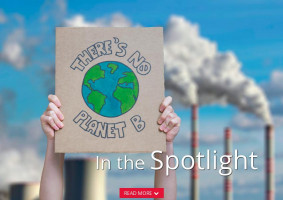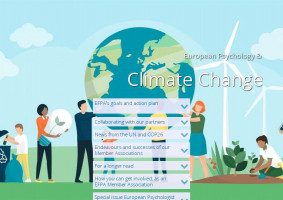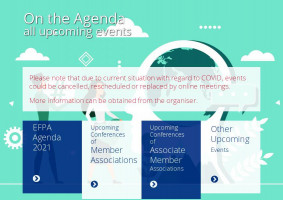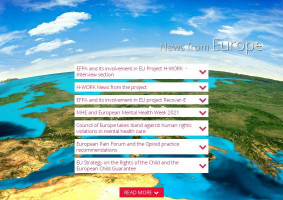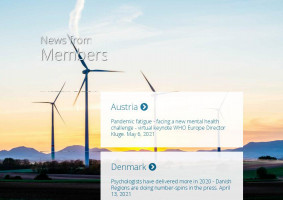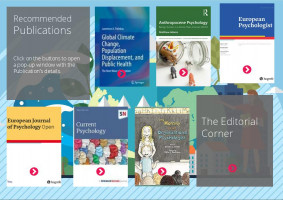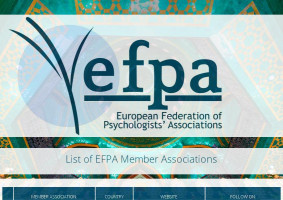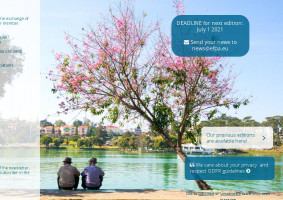READ MORE
EFPA is planning to have psychology and climate change as one of the fields of action for our 2021-2023 mandate. Our plans include:
1. Priority field of action:
Make climate change one of EFPA’s priority fields of action, and therefore a focus for the goals of EFPA’s working groups.
2. Policy influencing at the European level:
Monitor, disseminate and seek to influence the work of the European Parliament / Commission in the field, drawing on expert policy advice, and using influencing materials prepared by our MAs / an expert reference group.
3. Links across Europe:
Foster connections between MAs that have climate change as a policy / advocacy priority, and facilitate regular discussions to share resources, actions and messaging.
4. Expert reference group:
Form a reference network of European experts with research track records and deep knowledge in psychology and climate change to ensure psychological evidence is at the heart of what we all do.
5. Support hub:
Develop an EFPA psychologists’ support hub to bring together resources from across Europe on psychology and climate change.
6. Publicity:
Use the newsmagazine to highlight expert articles on psychology and climate change. Publicise the work of EFPA’s working groups re climate change. Publicise the policy / advocacy work of our MAs.
7. European Congresses:
Encourage climate related submissions and a stream on psychology and climate change at both ECP2022 and ECP2023.
8. Connecting professional staff:
Bring together professional staff working on psychology and climate change (e.g. research, policy, communications staff) into a coordinating network.
9. Working with others:
Co-operate with our partner organisations (affiliate and associate members and MoU partners).
Back to top
Having climate change as one of our fields of action means we will be joined with many psychology associations around the globe including other members of the Global Psychology Alliance in attempting to harness the knowledge base of Psychology to make a difference in the global challenge of tackling climate change. This builds on the work which was started in Lisbon in November 2019, when over 40 countries signed a proclamation and committed to ongoing collaboration in the application of psychological science to jointly advance progress on critical global issues, including the United Nations Sustainable Development Goals.
EFPA News Magazine reported about the 2019 International Summit in Lisbon. Please find Nicola Gale’s report in our November 2019 edition
2021 is the year of COP26 which is the UN Climate Change Conference being hosted by the UK in Glasgow between 1-12 November in partnership with Italy. Plans are being developed to have a psychology presence at COP26 for psychology to make a difference.
COP26 has a monthly newsletter to which you can subscribe here
If viewed in a browser, it can be translated instantly into many different languages.
How you can get involved, as a citizen
As citizens, people ask what can we do? This organisation, to which COP26 is affiliated, proposes 16 Steps that are the most effective way to reduce your carbon pollution and persuade others to do the same.
Back to top
- Ukraine
Ukraine, Jan 2021
EFPA's Ukrainian member 'National Psychological Association of Ukraine' takes action in a climate crisis
Inspired by the 2019 International Summit on Psychology and Global Health, psychologists in Ukraine set out to engage their colleagues in the fight against climate change.
With courtesy of the APA and the Global Psychology Alliance.
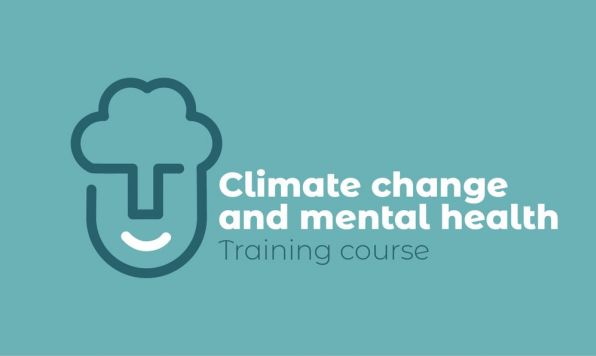
_w1460_h836_1.jpg)
Winner of the people’s choice in the American Psychological Association’s PsychSolutions competition’
Our Member Association Ukraine was a worthy winner of the people’s choice in the American Psychological Association’s PsychSolutions competition earlier this year, the story of their success and an account of their work so far and activities to come in the field of climate change can be read on APA website:
_w412_h642_1.jpg)
-
The British Psychological Society has set up Climate and Environmental Crisis Steering Group.
Its chair Tony Wainwright has written a personal account of its formation along with his Robert Roe Award lecture.
Introduction
The European Congress of Psychology in Moscow in July 2019 seems like another world, a world without facemasks, social distance and all the rest. At the conference I presented, via video link, the Robert Roe Award lecture celebrating Robert Roe’s contribution to psychology. I have written up an extended account and you can download it from here Robert was an inspiring leader and his personal and professional values have been influential for so many of us. His passing in February 2016 also seems like a different world but I would recommend reading his work as it is as up to date as ever.
It and I have always been a great admirer of Robert’s vision for how psychology can address real world problems and what its future focus should be, and it was with much encouragement from him that I was part of three EFPA groups over the years, the Board of Ethics, the Board Human Rights and Psychology and the Board of Prevention and Promotion. I learned a good deal from all of them, and in my paper, I develop the connections between ethics, human rights and ethics with the climate and environmental challenges we face and how psychology can contribute to finding solutions.
Some psychological associations, for example the APA, have had divisions that focussed on environmental psychology. Neither the BPS nor EFPA have had such networks and yet there are expert psychologists throughout Europe and indeed globally, in this field of work. These are now playing a prominent role as finding ways that psychology can help us address the way we are changing the climate and the environment; after all it is about people and how we live together – psychology - in its many domains of practice.So has been encouraging that the BPS established a climate and environmental crisis steering group in October 2020 which aims to develop a network that can collaborate on efforts we need to make to address these challenges. This is also true of the EFPA’s plans, which is more good news. The bad news, of course, is that we, among many others, have come to the party very late in the day and we need to significantly up our game to have any hope of mitigating the worst impacts.
The Steering Group is establishing two ‘task and finish’ groups. One to examine the impact of climate change on health and the second on the role psychology can play in social, organisational and individual change.
The two groups have been chosen from four priorities area and are a first step. Both groups will draw on the experience we have all had during the covid-19 pandemic which has raised everyone’s awareness of the connection between the environment and human health and the social and psychological challenges of how we respond to them.Below are some articles from members of the Steering Group that have been published in the BPS magazine The Psychologist.
In 2010 David Uzzell delivered the joint British Academy/British Psychological Society Annual Lecture, on psychology and climate change entitled “Collective solutions to a global problem”.
“The public are concerned about climate change. Typically, surveys from governments, pollsters and universities show that around 80 per cent of adults are very or fairly concerned about climate change. But levels of concern are on the wane – the UEA e-mails affair, the hype surrounding Copenhagen and the failure of the politicians to produce a significant agreement, and scepticism in the media have no doubt all played a part.”
Read more
Find below some articles from members of the UK Steering Group that have been published in the BPS magazine The Psychologist
In 2010 David Uzzell delivered the joint British Academy/British Psychological Society Annual Lecture, on psychology and climate change entitled “Collective solutions to a global problem”.
Lorraine Whitmarsh, Director of the Centre for Climate Change and Social Transformations writes about the role psychology can play – from all branches of the profession. Read more
Richard Carmichael writes on the shift to sustainable diets. Richard was commissioned by the UK Climate Change Committee to report on Behaviour Change, Public Enagagement and Net Zero.
Read more
Martin Milton is a recent member of the Steering group. He and colleagues from the Counselling Division have produced a set of readings on this topic and here he writes about the need to take action. His co-author Maya Gimalova was in training as a counselling psychologist. Read more
Back to top

-
Niels Peter Rygaard, Norwegian nominee to EFPA Board for Promotion and Prevention, writes about Climate Change, Migration and Child Mental Health Uniting researchers, NGO's, governments and daily caregivers.
Climate change, industrialization, and conflicts over scarce resources uproots families, and causes them to migrate to the outskirts of densely populated megacities (an ideal environment for recurrent virus diseases).
This highlights the urgent need for online-based, large scale mental health interventions, in particular for high-risk children and youth. In the wake of this migration, countless numbers of children - more than one million in the European Union alone – have been separated from parents and grow up in foster families, group homes, refugee camps, slums, etc. How can our profession help public authorities and NGOs improve the mental health and learning of this vulnerable population? The author’s paper in press analyzes how climate change is causing a rapid adaptation process in traditional rural and indigenous people families to their new urban environments. This intercultural challenge tends to increase the risk of family system disorganisation, poor child attachment, and subsequent child abandonment. [1]
After lecturing and studying child-in-care organizations in many countries since 2008, the author co-founded and developed the Danish non-profit Fairstart Foundation. Its mission is to help organizations build national local competences in Alternative Care. In long-term partnerships, local needs for staff education are researched, and the contents of six-month online classrooms for staff are designed on the EdX university education platform from Massachusetts Institute of Technology. To define quality care, an expanding network of international psychologists and researchers generously contribute to program development [2].
By studying attachment, group development and organizational theories, students acquire skills in how to train local groups of caregivers in daily care and learning practices. In each module, a student trains a local group of caregivers, using a memory stick with a program version in the local language, adjusted to cultural strengths and challenges. After training, students practice peer feedback and receive daily online support from Fairstart. Pre-and -post questionnaires for caregiver and child development are electronically registered for outcome research.
In current partnerships, SOS Children’s Village staff in four East African countries now train local foster parents. For Greenland government, two educations in Inuit and Danish are implemented [3].
The invaluable interest from EFPA [4], from its group for Promotion and Prevention, and the American Psychologist Association, has helped Fairstart educate more than 500 staff in 26 countries, who have trained the caregivers of 40,000 children. This cooperation across borders and professions demonstrates our profession´s ability to respond to the growing need for mental health interventions, as well as the low-cost and large-scale dissemination qualities of blended learning designs.
References:
[1] Rygaard, N.P. (in press) Climate Change, Migration, Urbanization, and the Mental Health of Children at Risk in the European Union - A Discussion of the Need for Large Scale Interventions European Psychologist (estimated publication July 2021).
[2] The www.fairstartfoundation.com. For details:
https://www.academia.edu/33897146/2017_European_Psychologist_Association_Presentation
[3] Video Examples from partner organizations [4] In particular, the inspiration and support from former EFPA presidents Robert Roe and Telmo Mourinho Baptista, among others.
Back to top
EFPA’s News Magazine will be carrying regular stories about climate change over the next few editions. If you have a story and want to share the work of your association, please contact our editor via News@efpa.eu .
-
The July 2021 Special issue of the European Psychologist is on psychology and the climate and environmental crisis edited by Tony Wainwright, Margarida Gaspar de Matos and Katariina Salmela-Aro and has 9 papers.
In addition there will be a compilation of archived papers that the European Psychologist has published on this topic over the years, published at the same time.
European Psychologist
Jetten, J., Fielding, K., Crimston, C., Mols, F., & Haslam, S.A. Responding to Climate Change Disaster: The case of the 2019/2020 bushfires in Australia
Thompson, H.E. Climate ‘Psychopathology’: The Intersection of Mental and Physical Health in the Climate Emergency
Santos, O., Virgolino, A., Vaz Carneiro, A., & Gaspar de Matos, M. Health behavior and planetary health: a multi-level environmental health approach
Wallis, H., Bamberg, S., Schulte, M., & Matthies, E. Empowering People to Act for a Better Life for All—Psychology’s Contributions to a Social Science for Sustainability
Whomsley, S.R.C. Five roles for psychologists in addressing climate change, and how they are informed by responses to the COVID-19 outbreak
Inauen, J., Contzen, N., Frick, V., Kadel, P., Keller, J., Kollmann, J., Mata, J., & van Valkengoed, A.M. Environmental Issues are Health Issues: Making a Case and Setting an Agenda for Environmental Health Psychology
Rygaard, N.P. Climate Change, Migration, Urbanization, and the Mental Health of Children at Risk in the European Union – A Discussion of the Need for Large Scale Interventions10.1027/1016-9040/a000442
Magioglou, T., & Coen, S. The construction of a hegemonic social representation: Climate crisis and the role of COVID-19 in defining survival
Schulte, M., Bamberg, S., & Rees, J. We, The Change: Outlining research lines of how psychology can contribute to the understanding of societal transition processes.Back to top
